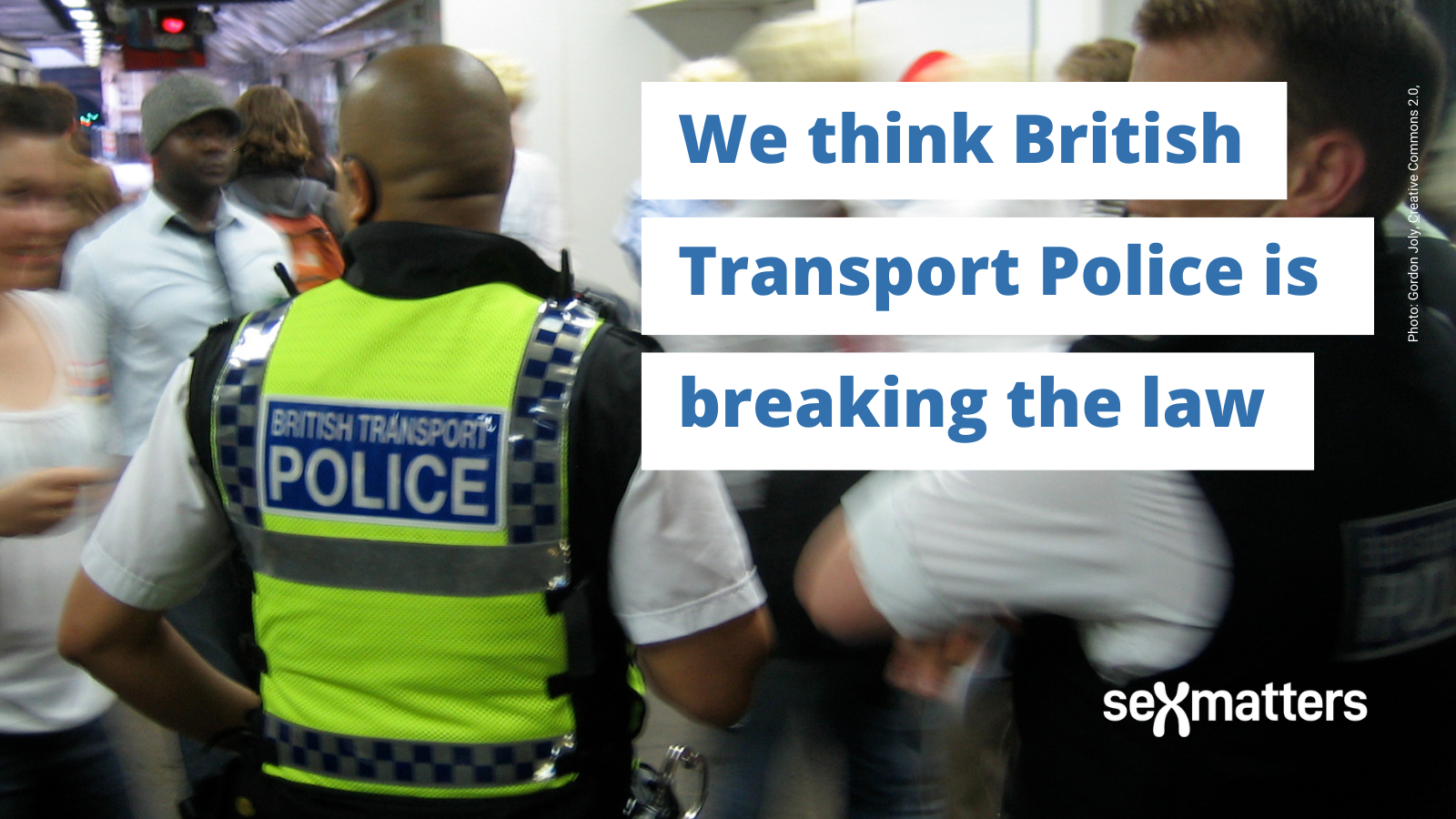Sex Matters threatens British Transport Police with legal action

At the end of last week Sex Matters sent a pre-action letter to the British Transport Police (BTP) challenging its new Transgender Search policy. The pre-action letter (which also names the National Police Chiefs’ Council as an interested party) is the first step towards taking the BTP to court for a judicial review of the policy.
The Police and Criminal Evidence Act 1984 (PACE) provides that when a person is being searched the officer carrying out a search “shall be of the same sex as the person searched”. The BTP policy interprets “same sex” as relating to paperwork not to reality.
As the recent Baird Inquiry emphasised:
“The impact of strip searches can be severe. They are a profound invasion of people’s privacy and bodily autonomy. They are often experienced as humiliating and degrading.”
This is particularly true for women. Being searched by a trans-identifying man is likely to be no less traumatic than being searched by any other man, and this is not changed by a gender-recognition certificate (GRC).
The National Police Chiefs’ Council (NPCC) has withdrawn the guidance it produced that said that officers could search based on their “lived gender”, and the BTP policy steps back from endorsing self-ID – but it still says that male officers with GRCs can strip-search women. We say this policy is unlawful. Our pre-action letter sets out four grounds on which we plan to challenge it:
- The policy violates human rights. Article 3 of the European Convention on Human Rights is the absolute prohibition of people being subjected to inhuman or degrading treatment or punishment. It is clear that it would be a violation of Article 3 for a male officer to carry out a strip-search on a woman. This remains the case if that male has a government-issued GRC, and whether or not the woman knows about the certificate. The practice of not telling women the sex of an officer, or lying to her that the officer is female, is also a violation of Article 8 (privacy) and Article 10 (in relation to freedom to receive information).
- The policy amounts to indirect discrimination and harassment against women because it places women at risk of fear, humiliation, indignity and harassment. It puts women at a particular disadvantage compared to men not only because women are more vulnerable and subject to greater taboos about physical modesty, but also because men pose a greater risk of sexual assault, voyeurism and exposure, and it is well known in the medical literature that a proportion of cross-dressing and trans-identifying men are exhibiting a sexual paraphilia.
- The policy frustrates the purpose of legislation. The requirement in s54(9) PACE for the constable carrying out a search to be of the same sex as the person searched must be understood as a reference to actual sex, unmodified by a GRC; BTP’s failure to treat s54(9) PACE as requiring strip-searches to be carried out by a person of the same biological sex is therefore an error of law or ultra vires – beyond its authority. Similarly, PACE requires that all matters relating to persons in detention be recorded in the custody records. Failing to record and communicate the actual sex of individual officers undertaking searches means that this basic requirement is not being met.
- The equality impact assessment is inadequate. No consideration has been given to the impact of the BTP Guidance on the protected characteristic of sex, when it is clear that women will be significantly more impacted by this policy than men. Nor is adequate attention paid to the protected characteristic of belief.
We call for the BTP to:
- withdraw the policy and issue an interim policy that confirms detainees will only be searched under statutory powers by an officer or staff of the same biological sex (and not sex modified by a GRC)
- agree to prepare a fresh policy, on searching trans-identifying individuals who ask to be searched by an officer of the opposite sex. This policy must take into account the impact on officers who may be under pressure to undertake these searches.
